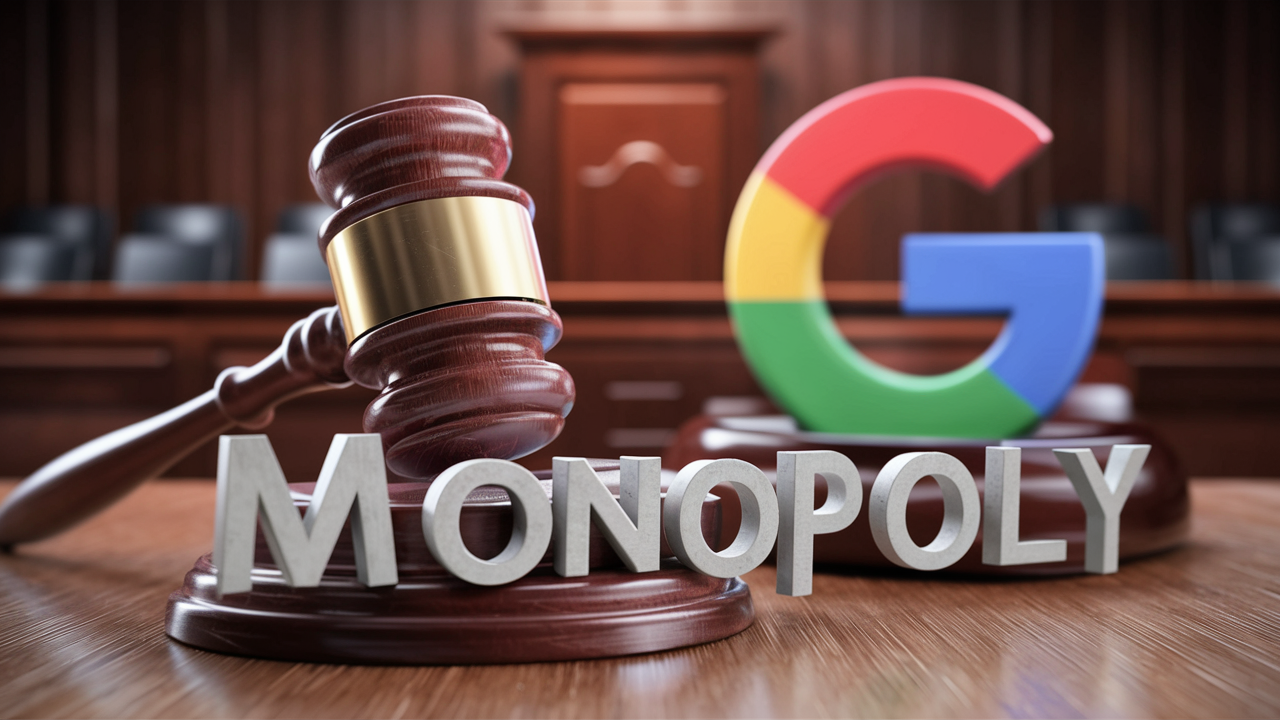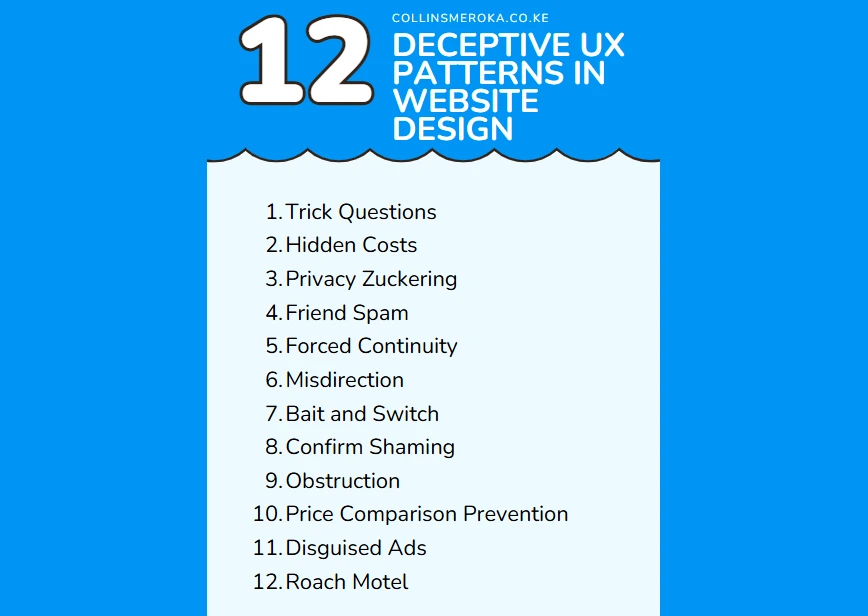
In a landmark decision that could reshape the digital landscape, a U.S. federal judge recently ruled that Google violated antitrust laws by maintaining an illegal monopoly over online search and search advertising markets.
This ruling has profound implications not only for Google
but also for businesses, SEO agencies, and marketers who rely heavily on
Google's search engine.
Overview of Google’s Antitrust Violation
In the realm of search engines, Google's dominance has been
nearly absolute for years. This dominance, however, has recently come under
intense scrutiny due to a landmark ruling by U.S. District Judge Amit P. Mehta.
The court found that Google engaged in illegal practices to
maintain its monopoly over the online search and search advertising markets,
specifically through its multibillion-dollar agreements with major tech companies
like Apple and Samsung.
The Core of Google's Antitrust Violation
The ruling primarily hinges on Google's practice of paying
large sums of money to be the default search engine on a vast array of devices
and platforms.
In 2021 alone, Google reportedly spent over $26 billion to
secure its position as the default search engine on devices like iPhones and
Android phones.
These deals ensured that users of these devices would
automatically use Google for their search queries unless they took active steps
to change the default settings, something most users rarely do.
Sources: JURISTnews
& Hotel News Resource.
From an SEO perspective, this practice has had a profound
impact on the landscape. By ensuring its search engine was the default on
billions of devices, Google effectively limited the visibility of alternative
search engines like Bing or DuckDuckGo.
This lack of competition not only stifled innovation in
search technologies but also meant that SEO strategies became heavily Google-centric.
As a result, SEO professionals have largely focused their efforts on optimizing
for Google’s algorithms, often to the exclusion of other search platforms.
The Implications for Default Search Engine Deals
The court’s decision could lead to significant changes in
how search engines are positioned on devices. If the ruling is upheld, Google
may be prohibited from making such exclusive agreements in the future.
This would mean that device manufacturers like Apple and
Samsung could either develop their own search engines or offer users a choice
of search engines when they set up their devices for the first time.
For SEO agencies, this potential shift could be a game
changer. No longer would Google be the automatic choice for users on these
devices; instead, there could be a more level playing field where other search
engines have a better chance to compete.
This would likely diversify the SEO landscape, requiring a
more nuanced approach that considers multiple search engines and their
respective ranking algorithms.
The Strategic Shift for SEO Professionals

For SEO experts, the days of a Google-dominated strategy
might be coming to an end. If the market becomes more competitive, with other
search engines gaining traction, SEO strategies will need to evolve.
This could involve optimizing content for multiple search
engines, each with its own unique set of ranking factors. For instance, while Google
places a strong emphasis on backlinks and content relevance, other search
engines might prioritize different aspects, such as privacy or local search
factors.
Furthermore, this ruling could lead to more innovation in
search technology, as competing search engines try to differentiate themselves
from Google.
SEO professionals will need to stay on top of these
developments, continually refining their strategies to ensure their clients'
content remains visible across a broader range of platforms.
The importance of technical SEO, content optimization, and
understanding diverse algorithms will be more critical than ever.
The Road Ahead After the Google’s Monopoly Ruling 2024
While Google has announced its intention to appeal the
ruling, the outcome of this legal battle could set a precedent that affects not
just Google but the entire tech industry.
For SEO professionals, the key takeaway is the potential for
a more competitive search landscape. As we wait for further developments,
staying informed and adaptable will be essential for navigating the changes
that may come.
Potential Impact on SEO Strategies
The ruling against Google has the potential to significantly
reshape how SEO strategies are developed and implemented. As SEO professionals,
we have long operated within a Google-dominated framework.
Google's algorithms, ranking factors, and best practices
have been the primary focus for driving search visibility and, ultimately,
website traffic. However, this recent antitrust ruling may alter the
competitive landscape, forcing a broader, more diversified approach to SEO.
The Shift from Google-Centric Optimization
Historically, SEO strategies have revolved almost
exclusively around Google. This makes sense given Google’s overwhelming market
share, which has hovered around 90% globally for years.
However, if the ruling limits Google's ability to secure
default search engine deals, we could see a rise in the use of alternative
search engines like Bing, DuckDuckGo, and even potential new entrants developed
by major tech players like Apple.
For SEO agencies, this shift means adapting to a
multi-engine optimization strategy. Each search engine has its own set of
ranking algorithms and factors.
For example, while Google emphasizes backlinks and content
quality, Bing is known for giving more weight to on-page factors and social
signals. DuckDuckGo, on the other hand, prioritizes privacy and security, which
may become more important ranking factors if its user base grows.
Diversification of SEO Efforts
As a result, SEO professionals will need to diversify their
efforts across multiple platforms. This could involve optimizing content not
just for Google's search engine but also for others, tailoring strategies to
the specific strengths and weaknesses of each.
For instance, while Google continues to dominate in mobile
search, Bing has a stronger presence in desktop searches, particularly in
specific markets like the U.S. Understanding these nuances will be key to
maintaining visibility and driving traffic.
Moreover, the rise of alternative search engines could lead
to more opportunities in niche markets. Businesses that previously struggled to
rank well on Google might find new avenues for visibility through alternative
platforms that align more closely with their specific industry or audience.
This could mean developing specialized content that caters
to the preferences of different search engines or even experimenting with new
forms of search optimization, such as voice search or AI-driven search
technologies.
Preparing for Algorithmic Changes
Another significant consideration is the potential for
changes in Google's own algorithms and business practices in response to the
ruling. If Google is forced to alter its approach, we may see shifts in how the
search engine prioritizes content, ranks pages, and handles ads.
SEO professionals must stay vigilant and be ready to adjust
strategies quickly to respond to these changes.
For example, if Google’s ability to make default search
engine deals is restricted, it might double down on improving its algorithms to
retain its user base. This could mean more frequent updates to the Google
algorithm, increased focus on user experience metrics (such as Core Web
Vitals), or even changes to how ads are displayed in SERPs.
SEO agencies must be prepared to continually test, measure,
and refine their tactics to stay ahead of these shifts.
The Importance of Technical SEO and Content Diversity
As search engines evolve, the importance of technical SEO
will likely increase. Ensuring that websites are not only optimized for
Google's algorithms but also compatible with the technical requirements of
other search engines will become essential. This includes aspects like site
speed, mobile optimization, schema markup, and more.
Additionally, content diversity will play a crucial role in
future SEO strategies. With the possibility of a more fragmented search market,
creating a range of content types—text, video, voice, and even AI-generated
content—will be critical to reaching different audiences across various
platforms.
Content strategies will need to be more flexible and
adaptable to the unique demands of each search engine.
Broader Implications for the Tech Industry
The ruling against Google doesn't just impact the search
giant; it has broader implications for the entire tech industry. This landmark
decision is likely to set a precedent that could influence how regulators
approach other major players in the tech space, particularly those involved in
emerging technologies like AI, digital advertising, and cloud computing.
For SEO agencies and their clients, understanding these
broader implications is essential for anticipating future trends and preparing
for potential changes in the digital landscape.
Increased Scrutiny on Big Tech
The ruling against Google is part of a larger trend of
increasing scrutiny on big tech companies by regulators around the world.
Governments and regulatory bodies are becoming more proactive in addressing
what they see as anti-competitive practices by major tech firms.
This is evident not only in the U.S. but also in Europe,
where laws like the Digital Markets Act (DMA) have been enacted to curb the
dominance of large digital platforms.
For SEO professionals, this means that the regulatory
environment is likely to become more complex. As more companies come under
investigation, we may see a wave of new regulations aimed at promoting
competition and protecting consumer interests.
These regulations could impact everything from data privacy
to how digital ads are served, and SEO agencies will need to stay informed
about these changes to effectively advise their clients.
The Ripple Effect on Other Tech Giants

The decision against Google could also have a ripple effect
on other tech giants, particularly those with significant market power in their
respective domains. Companies like Amazon, Meta (formerly Facebook), and Apple
could face similar antitrust challenges in the near future.
For instance, Amazon's dominance in e-commerce and cloud
services, Meta's control over social media and digital advertising, and Apple's
influence over the app ecosystem are all areas that could come under scrutiny.
This potential for increased regulation could lead to
significant changes in how these companies operate, which in turn could affect
the broader digital ecosystem.
For SEO agencies, it’s important to consider how these
changes might impact clients who rely on these platforms for traffic, sales, or
visibility. Diversifying digital strategies to avoid over-reliance on any
single platform will become increasingly important as the regulatory landscape
evolves.
Implications for AI and Emerging Technologies
Another area to watch is the impact of this ruling on the
development and deployment of AI and other emerging technologies.
Google has been a leader in AI, particularly in the area of
search algorithms and machine learning. However, as regulators focus more on
big tech's influence, there may be new restrictions on how AI technologies are
developed and used, especially if they are seen as contributing to monopolistic
practices.
For SEO professionals, this could mean changes in how
AI-driven tools and platforms are utilized. Tools that rely heavily on data
from Google or other big tech companies might face new limitations, prompting a
need for alternative solutions.
Additionally, the development of AI-driven search engines
could accelerate, offering new opportunities for SEO optimization in areas like
voice search, visual search, and personalized search results.
Preparing for a More Competitive Landscape
The broader implications of this ruling suggest that the
tech industry could become more competitive in the coming years. For SEO agencies,
this presents both challenges and opportunities.
On one hand, a more competitive landscape could mean more
platforms and search engines to optimize for, requiring more specialized
knowledge and diversified strategies.
On the other hand, it could also mean new opportunities to
help clients gain visibility on emerging platforms that were previously
overshadowed by Google’s dominance.
Staying ahead of these trends will require SEO professionals
to be agile and forward-thinking. This might involve investing in new skills,
exploring innovative tools, and continually reassessing strategies to ensure
they align with the latest developments in the industry.
What This Means for Your Business
As the search landscape potentially shifts away from a
Google-centric model, businesses must adapt their strategies to remain
competitive.
For both established companies and emerging brands, understanding
and preparing for these changes is essential to maintaining and growing their
visibility in search engine results.
Adapting to a Multi-Engine Search Strategy
For years, businesses have focused the majority of their SEO
efforts on optimizing for Google. Given Google's market dominance, this
approach made sense.
However, as the ruling threatens to erode Google's monopoly
by encouraging the rise of alternative search engines, companies may need to
broaden their SEO strategies to include other platforms.
This shift could mean investing in optimization strategies
for Bing, DuckDuckGo, or even new search engines that may emerge from tech
giants like Apple. Each of these platforms has its own algorithms and ranking
factors, so businesses must ensure that their websites are optimized for a
variety of search engines.
For example, while Google emphasizes link-building and
content quality, Bing might require a stronger focus on social signals and
on-page optimization.
SEO agencies can play a crucial role in guiding businesses
through this transition. Agencies can help businesses maintain a strong search
presence regardless of which search engine gains traction by providing
expertise in multi-engine optimization and staying updated on algorithmic
changes across different platforms.
The Importance of Flexibility in SEO
Flexibility will be key as businesses navigate the potential
changes in the search landscape. SEO strategies that are too rigidly focused on
Google may become less effective if Google’s dominance wanes. Instead,
businesses should adopt a more agile approach to SEO, ready to pivot and adjust
as the market evolves.
This could involve regularly reviewing and updating SEO
practices to ensure they align with the latest trends and best practices across
multiple search engines.
It might also mean experimenting with new forms of content,
such as video or voice search optimization, to capture traffic from emerging
platforms.
Moreover, businesses should consider the broader
implications of potential regulatory changes on digital marketing.
For example, increased scrutiny on data privacy and targeted
advertising could lead to shifts in how digital ads are served, impacting paid
search strategies. Being proactive in understanding and adapting to these
changes will be critical to maintaining a competitive edge.
Leveraging Data and Analytics
As the search environment becomes more complex, the role of
data and analytics in SEO will become even more important.
Businesses should invest in robust analytics tools that can
track performance across multiple search engines and provide insights into
which strategies are most effective. This data-driven approach will enable
businesses to make informed decisions about where to allocate resources and how
to optimize their content for maximum visibility.
SEO agencies can support businesses by providing advanced
analytics and reporting services, helping to identify opportunities for
improvement and areas where competitors might be gaining an edge.
Its only through being smart with data that businesses can stay ahead of the curve and ensure their SEO efforts deliver the best possible return on investment.
Related Articles

Effective Website Headlines with High Conversion Rates
Dec 26, 2024
12 Deceptive UX Design Patterns in Website Design
Dec 26, 2024
Why Overly Beautiful Websites Fail to Convert (And What to Do)
Dec 25, 2024
The 8 Micro-Yeses of a Landing Page and Website
Dec 24, 2024